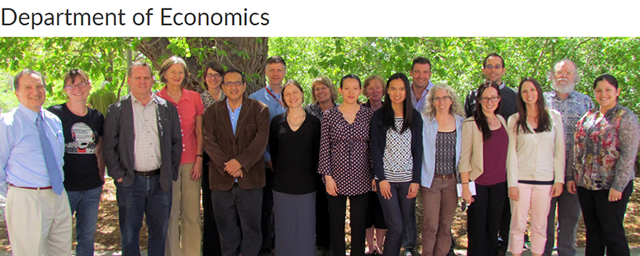
Economics ETDs
Publication Date
Fall 12-15-2020
Abstract
Many barriers to employment and healthcare access in the United States exist. Barriers to employment include lack of education, homelessness, or a criminal background. Barriers to healthcare include lack of insurance, lack of medical knowledge, and the inability to pay for service. This dissertation examines the role of transportation access and if transportation access is a burden for employment and healthcare access in the Southwest United States. This dissertation also examines if those differences are different based on gender, race, and ethnicity. The 2017 National Household Travel Survey (NHTS) serves as the data source for this dissertation.
Chapter 1 gives an overview of the dissertation. Chapter 2 examines whether vehicle access in the household or other determinants affect the likelihood if individual is employed, works full or part-time, or works a single job or multiple jobs.
Chapter 3 uses the concept of travel burden from healthcare economics to investigate travel burden in the context of commutes to work. Chapter 4 examines the idea of travel burden to healthcare visits within the context of the Southwest United States. Chapter 5 gives brief summaries of each of the chapters, and offers brief policy recommendations.
Degree Name
Economics
Level of Degree
Doctoral
Department Name
Department of Economics
First Committee Member (Chair)
Richard Santos
Second Committee Member
David van der Goes
Third Committee Member
Alok Bohara
Fourth Committee Member
Eliseo Torres
Language
English
Keywords
race, gender, ethnicity, transportation access
Document Type
Thesis
Recommended Citation
Hensley, Michael. "Three Chapters on Transportation and its Impact on Employment and Health Visits for Low-income Adults in the Southwest." (2020). https://digitalrepository.unm.edu/econ_etds/116
